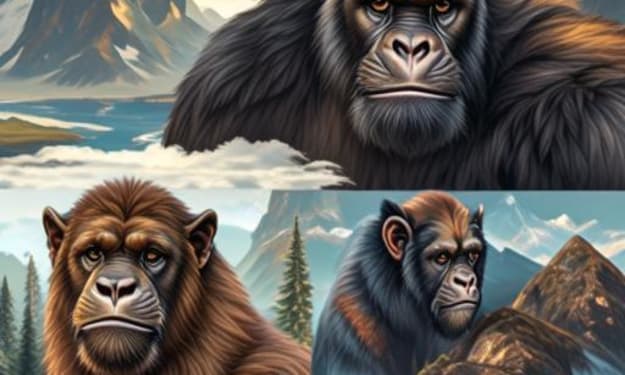
It’s the most pressing problem in the world, but have you ever tried to talk about climate change at a dinner party? You might have been met with gaping mouths, empty stares, and been accused of being full of doom and gloom. Then there are the shoulder shrugs, the head nods, and the feigned interest, “Yeah, that sucks. What about those 49ers huh?”
Talking about climate change is like talking about having cancer. We know there’s a problem, but nobody wants to discuss it. For the handful of people that do, they offer advice on making token gestures, for example, “Give up straws, or you should recycle.”
So, if climate change is the biggest problem on the planet why don’t more people care? Lisa Bennet spent five years interviewing ordinary Americans and climate experts and co-authored Ecoliterate, a book addressing ecological issues in education. According to her, there are five main reasons why people don’t take climate change seriously-
1. We are short-term thinkers. The stresses of modern life can be challenging and having to pay the rent and bills or get to work on time seems much more immediate than melting ice caps and increasing temperatures that can unfold over years or decades. Also, if it’s not happening in your backyard, it’s hard to see the immediacy of it.
2. It costs money. In 2008 and 2009 the world was still dealing with the fallout from the global financial crisis and we thought that the fallout from climate change was still decades away. Climate change deniers love to point out that transitioning off fossil fuels will cost jobs and lead to economic catastrophe.
However, since 2018, we’ve seen record-breaking floods, fires, hurricanes, and a global pandemic, which will cost the economy tens of trillions over the long term. If things get much worse, it will cost hundreds of trillions.
According to a study by the World Economic Forum, transitioning off fossil fuels and repairing nature could generate $10.1 trillion in annual business and create 395 million jobs by the end of 2030.
3. We have lost touch with the natural world. We spend much of our lives inside, whether it’s at home, at work, in our vehicles, or at a shopping mall. The modern world and its lack of connection with nature has made it difficult to understand and care for it.
The irony is that our health is inextricably connected to the health of our ecosystems. A study from 2019 says that spending just two hours per week in nature could substantially improve your mental and physical health and increase your level of life satisfaction.
4. People don’t believe they can make a difference. Climate change is a big complex problem, caused by all of us, and being enabled by multi-national corporations that have billions of dollars in revenue and an army of lawyers. In the past few decades, these corporations have grown incredibly powerful and can manipulate governments. It makes the average person feel impotent to create any meaningful change.
5. Nobody ever feels like they have enough time. Much of our time in the modern world is devoted just to making a living. Add a family, some time for friends and leisure and it doesn’t leave a lot for anything else, much less trying to influence the government or fight large corporations.
However, in recent years there has been a change in attitude towards work and our priorities, given the effects of the global pandemic. As a result, many workers are demanding a better quality of life, which is leading countries to experiment with a four-day work week. It has been an overwhelming success in Iceland, with lower levels of stress, and improved quality of life. The UK has just started one of the largest trials in the world.
Maybe in the future, there will be a one day a week for the climate movement, where participants use part of that extra day for climate activism lobbying governments and corporations, or working on community bioremediation projects.
Changing Our Minds and Changing the System
So, to effectively fight climate change we need to make some changes to how we think and how our system works.
1. We need to start thinking in terms of long-term goals. It’s difficult when you are just trying to pay the rent and bills but there are simple things we can all do in our daily lives that can make a big difference in the long run. See 10 Ways to Reduce Your Carbon Footprint for some ideas.
2. Most of the objections to taking action against climate change come from the belief that it will cost jobs and hurt the economy. However, the studies show that inaction will cost us far more. An economy runs on a stable infrastructure. Without roads to drive on, regularly scheduled flights, and freight trains it’s difficult to move goods back and forth, which means no supply chain and fewer jobs.
All products depend on having an abundance of natural resources to make them. According to the report from the World Economic Forum, concentrating on repairing nature not only will we create jobs but will increase the value of the economy.
3. We need to reconnect with the natural world by regreening our cities with parks, trees, and plants. Not only will this reconnect us to nature but it can also cool the ambient temperature, improve our air quality, reduce our stress levels and improve our physical and mental well-being.
4. We need to rethink our economic, social, and political systems that enabled corporations to lie and manipulate the public and corrupt our leaders while putting their profits ahead of the well-being of the planet and its inhabitants.
5. We need to change the attitudes and behavior of the very wealthy, who emit the most CO2 with their egregious consumption habits but contribute the least to solving the problem by using legal loopholes that enable them to pay little or no taxes.
6. We need to change our consumption habits, by making minimalism a way of life, rather than living beyond the means of the planet.
7. We need to change our attitudes about what we can do. If the average person isn’t going to fight this fight, then who will? It doesn’t matter whether you are rich, poor, white, black, Asian, Latino, educated, or not. Climate change will affect you and your family and now is the time to challenge the system and make changes before it’s too late.





Comments
Annee is not accepting comments at the moment
Want to show your support? Send them a one-off tip.